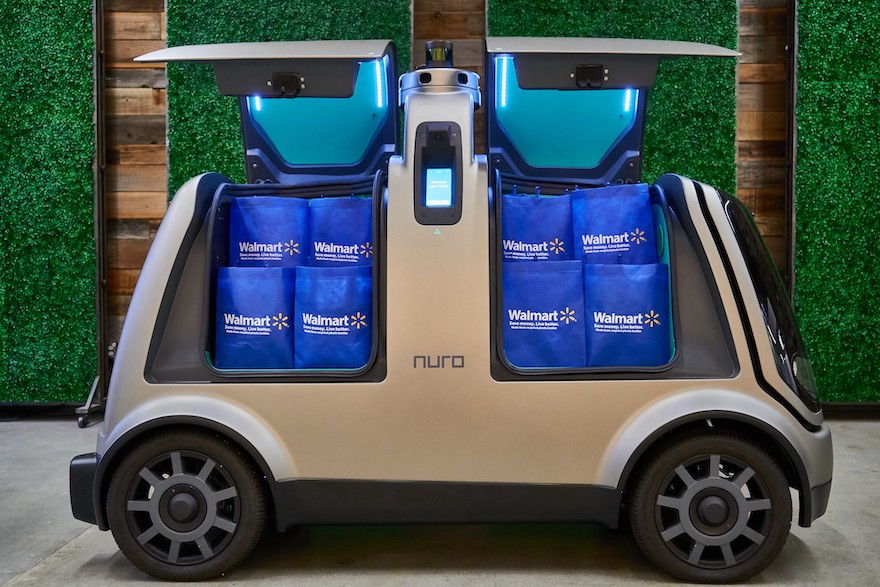Autonomous vehicle company Nuro will provide self-driving electric vehicles to deliver orders from select Houston Walmart stores to local customers’ homes in 2020.
The companies jointly consider delivery to be a natural extension of the shopping experience, bringing the on-demand economy to more people. Through this pilot expansion of the massive retailer’s Grocery Delivery Service, they hope to gain insights that will enable further development of delivery services.
Nuro founders Dave Ferguson and Jiajun Zhu came from posts as principal Engineers at Google’s self-driving car project (now Waymo) to start the company in 2016, combining robotics and artificial intelligence “to solve new challenges at a global scale.”
Nuro’s first product, the R1, weighs 1,500 pounds (680 kg), and is just over 6 feet (1.8 m) tall and about half the width of a sedan. This vehicle is designed to carry only cargo, with space for 12 grocery bags in the first model.

R1 autonomous electric delivery vehicle. Photo: Nuro
R1 navigates with suite of sensors. Beginning with GPS, it also uses custom-built, high-definition 3D maps to mark road features such as curbs, lane centers and markers, traffic signs and lights, crosswalks, and speed bumps. Sensors, including 12 high-definition cameras, radar, LIDAR, ultrasonic sensors, and audio sensors provide a 360-degree, live image of the surrounding area. “This enables us to see what other road users are doing, observe traffic signals, and understand anything that’s changed from our map,” says a company white paper.
“The vehicle then combines that with observations of what’s happening live around it, and its experience observing the behavior of different kinds of road users — understanding the behavior differences between a pedestrian and a cyclist, a truck and a coupe — to figure out which route is safest. The system continuously updates its plan based on new information, and will take preemptive action to, for example, ensure it has enough time to react if another car turns without signaling or a pedestrian enters the street from behind a parked bus. Each mile traveled makes the system smarter, remembering the location of every pothole in its path and learning more about how other road users behave.”

